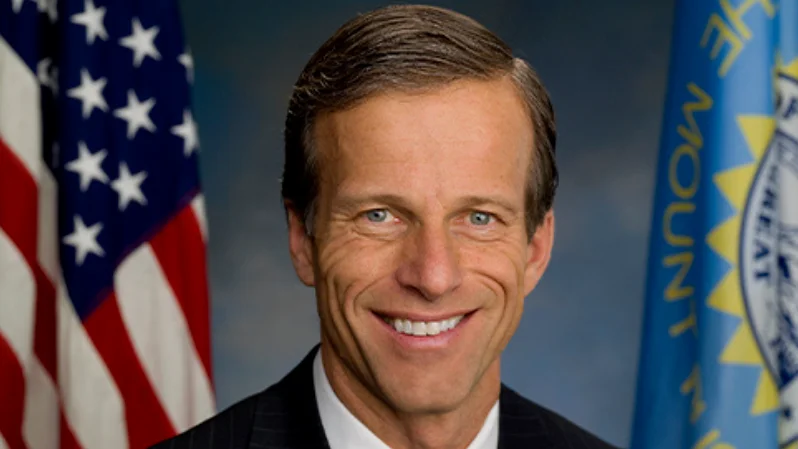Senator John Thune, US Senator for South Dakota | Official U.S. Senate headshot
Senator John Thune, US Senator for South Dakota | Official U.S. Senate headshot
U.S. Senate Majority Leader John Thune recently appeared on CNBC's Squawk Box with Joe Kernen, Becky Quick, and Andrew Ross Sorkin to discuss several pressing issues related to tax policies and federal spending.
Addressing the topic of tax permanency, Thune emphasized the economic benefits of permanent tax policies. He stated, "[If] you look at what is being proposed, and what I would argue is the thing that’s different is permanence … If you do this on a permanent basis, Tax Foundation, for example, says you get another 1.8 percent GDP growth out of that." Thune noted that an increase in GDP could significantly impact government revenues, stressing the need for pro-growth policies to address deficits and debt while also restraining federal spending.
On budget reconciliation, Thune reflected on past actions by Democrats when they had control over both legislative houses and the presidency. "[W]hen [Democrats] had unified control of the government – House, Senate, and White House – they did two reconciliation bills which increased spending by $3 trillion," he remarked. With Republicans now holding unified control, he urged maximizing opportunities to create a sustainable fiscal path.
Thune also highlighted the importance of providing tax certainty for small businesses. "[T]hey’re 96 percent of the businesses in this country," he said. He advocated for maintaining current deductions and fostering an environment conducive to economic growth.
Regarding President Trump's tax policies, Thune expressed his support for lowering taxes rather than increasing them. "Well, I don’t want to see taxes go up on anybody … we’re all about lowering taxes," he said. He acknowledged Trump's unconventional approach and its focus on aiding working Americans through measures like no taxes on tips or overtime.
Finally, Thune addressed Medicaid reforms aimed at reducing wasteful spending without harming beneficiaries. "The president’s taking Medicare off the table," he noted while pointing out that Medicaid remains a significant driver of federal expenditure due to states' strategies to maximize federal revenue.
Thune concluded by advocating for meaningful reforms such as work requirements within Medicaid to slow spending growth responsibly. "That saves you … over $100 billion," he asserted as part of broader efforts to tackle national debt challenges.


 Alerts Sign-up
Alerts Sign-up